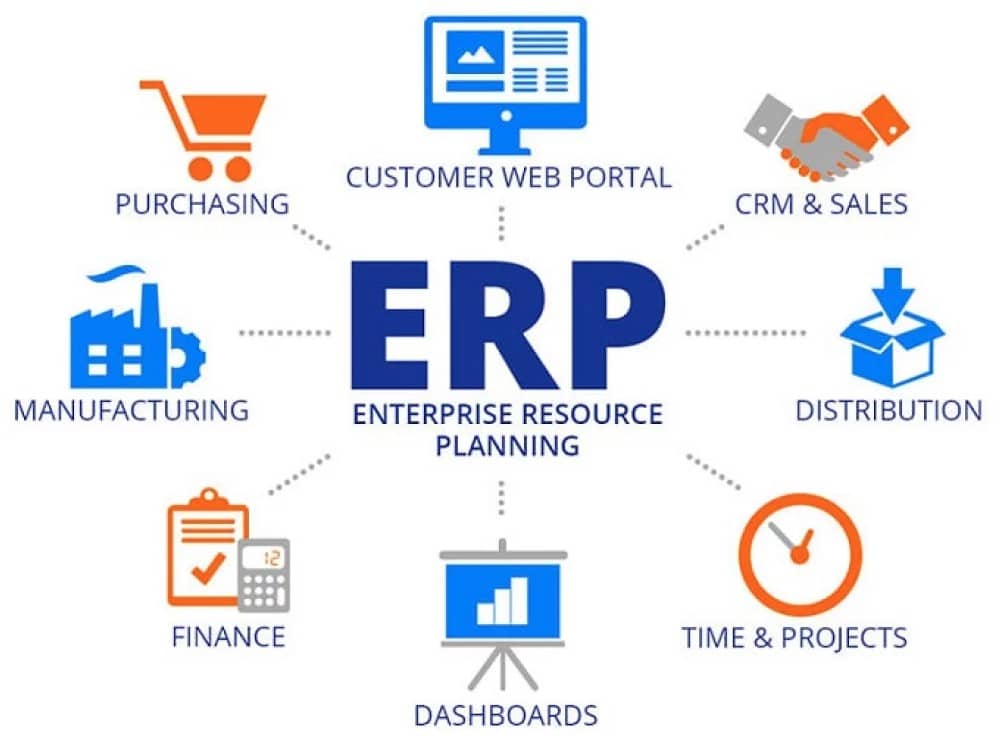In the dynamic landscape of modern business, staying ahead requires efficient management of resources and streamlined processes. Enter ERP Online, a game-changer in the realm of enterprise resource planning. This article explores the evolution, features, benefits, challenges, and best practices associated with ERP Online, shedding light on its impact on businesses.
Evolution of ERP Systems
Historical Background Enterprise Resource Planning (ERP) has come a long way since its inception. Initially, businesses relied on on-premise ERP systems, but the digital era ushered in a paradigm shift towards online solutions.
Transition to Online ERP The shift to ERP Online marked a turning point, offering businesses the flexibility of cloud-based solutions. This section delves into the historical journey of ERP systems and their evolution into the online domain.
Key Features of ERP Online
Cloud-Based Architecture One of the defining features of ERP Online is its cloud-based architecture. This section explores how this shift to the cloud enhances accessibility and data security.
Real-Time Data Access ERP Online ensures real-time data access, enabling informed decision-making. We’ll delve into how this feature is revolutionizing the way businesses operate.
Scalability Scalability is crucial for businesses of all sizes. Here, we discuss how ERP Online provides the scalability needed to adapt to evolving business requirements.

Benefits of Implementing ERP Online
Improved Efficiency Discover how ERP Online optimizes business processes, leading to increased efficiency and productivity.
Cost Savings Explore the cost-saving potential of ERP Online, from reduced infrastructure costs to more effective resource allocation.
Enhanced Collaboration Learn how ERP Online fosters collaboration among teams, breaking down silos and promoting a unified approach to business operations.
Common Challenges in Adopting ERP Online
Resistance to Change Resistance to change is a common hurdle in ERP Online implementation. This section provides insights into managing and overcoming this challenge.
Integration Issues Addressing integration challenges is crucial for a seamless transition to ERP Online. We explore strategies to navigate these complexities.
Security Concerns Security is paramount in the digital age. Uncover how ERP Online addresses security concerns and what measures businesses can take to ensure data integrity.
Best Practices for Successful ERP Online Implementation
Employee Training Effective employee training is a cornerstone of successful ERP Online implementation. We discuss the importance of training programs tailored to the needs of the workforce.
Customization Tailoring ERP systems to specific business needs is key. Learn how customization ensures that ERP Online aligns seamlessly with organizational goals.
Regular Updates Staying current with system updates is vital for optimal performance. Discover the importance of regular updates and how they contribute to long-term success.
Case Studies
Successful Implementations Explore real-world examples of businesses that have successfully implemented ERP Online, showcasing the positive impact on their operations.
Lessons Learned from Failures Not every ERP Online implementation is smooth sailing. Analyze case studies highlighting the lessons learned from failures, providing valuable insights for others.
Future Trends in ERP Online
Artificial Intelligence Integration As technology advances, ERP Online is poised to integrate artificial intelligence. This section explores the potential benefits and challenges of this integration.
Blockchain in ERP The intersection of blockchain and ERP is on the horizon. Understand how blockchain technology can enhance the security and transparency of ERP Online.
Mobile ERP Solutions With the rise of mobile devices, ERP solutions are becoming more mobile-friendly. Learn about the emergence of mobile ERP solutions and their impact on accessibility.
How to Choose the Right ERP Online System
Assessing Business Needs Selecting the right ERP Online system begins with a thorough assessment of business needs. We provide a guide on identifying the features essential for your organization.
Vendor Evaluation Choosing the right vendor is critical. This section outlines the key factors to consider when evaluating ERP Online vendors, ensuring a strategic partnership.
Success Stories
Companies Thriving with ERP Online Discover success stories of companies that have thrived after implementing ERP Online, showcasing the tangible benefits for business growth.
Positive Impacts on Growth Explore how ERP Online has positively impacted the growth trajectories of businesses, from startups to established enterprises.
Tips for a Smooth Transition to ERP Online
Communication Strategies Effective communication is pivotal during the transition. Learn strategies to communicate changes and ensure a smooth adaptation to ERP Online.
Monitoring and Evaluation Ongoing monitoring and evaluation are crucial. This section discusses tools and strategies for tracking the performance of ERP Online systems.
Realizing the Full Potential of ERP Online
Continuous Improvement ERP Online is not a static solution. Discover the importance of continuous improvement and how businesses can evolve with their ERP systems.
Optimization Strategies Optimizing ERP systems is an ongoing process. This section provides practical strategies for organizations to continually optimize their use of ERP Online.planning.